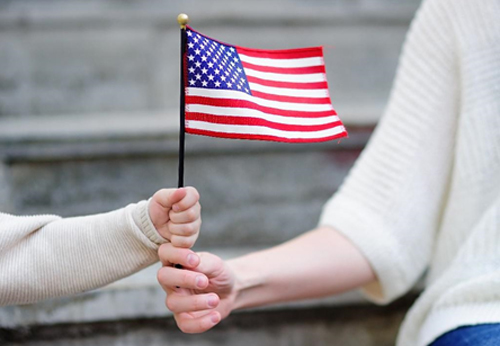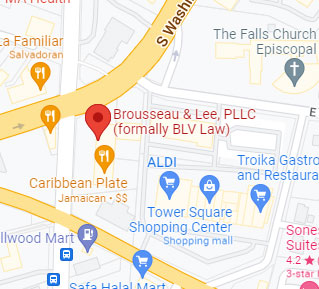 How To Prepare And File A Joint I-751
How To Prepare And File A Joint I-751
A joint I-751 petition is signed by the conditional resident and petitioning spouse. The law requires that you affirm that the qualifying marriage was entered under the laws of the place of celebration, has not been terminated, and was not entered into only to obtain an immigration benefit.
This is particularly important because I always tell my clients that immigration can be one reason why you get married. However, it cannot be the only reason that you get married.
When the parties sign the I-751, they affirm, under penalty of perjury, that the statutory requirements have been met. Then, regulations suggest that the following documentation should be included with a jointly filed petition:
- Documentation showing the joint ownership of property, such as a lease showing joint tenancy of a shared residence
- Birth certificates of children that have been born into the marriage, and
- The affidavits of third parties knowing the bona fides of the marriage, such as from friends of the couple.
Additional documentation you can submit will include:
- Proof of joint bank accounts, such as a letter from the bank and/or recent bank statements.
- Photocopies of credit cards held jointly and/or credit card bills.
- Copies of tax returns filed together as married filing jointly.
- It’s important to know: Those who file taxes as married filing separately will have a different probative value than those filing jointly. Hence, always file your taxes as married filing jointly, whenever possible.
- Proof of joint health insurance coverag
- Proof of joint auto ownership and auto insurance covering both spouses.
- Proof of vacations taken together such as trip itineraries, boarding passes, electronic airline tickets, credit card receipts for hotel stays, and photos of the spouses with family and friends and on vacations taken together.
- Cell phone bills showing the existence of a family plan.
- Copies of utility bills, (even if they’re only in one name), help establish a shared residence.
- And more…
(When preparing all this evidence, organizing an index of all the documents is helpful. This way, you can have a checklist to refer to as you gather everything you need.)
What Documents Are Most Important?
When it comes to the joint I-751 petition, USCIS is generally most interested in documents that evidence a life together after the grant of conditional residence… but what does this really mean?
Suppose you’ve gotten married and your conditional green card has been pending for 18 months. Since you’ve been married for 18 months, there is evidence that will help establish the bona fides of your marriage over those 18 months.
However, at the I-751 petition stage, the USCIS is really only interested in evidence that came into play after the grant of the conditional card.
If you’ve only recently gotten your conditional card, it might be difficult to gather the necessary evidence since USCIS is only concerned with the time from the grant of the conditional card to the expiration of the conditional card.
Because of this, speaking with an immigration lawyer before you file your petition is the best way to make sure you have everything you need on hand for the best chance of case approval.
For Couples Living Separately
Suppose the parties are living separately, but the marriage is still viable. This is quite a unique circumstance, but it does happen. In that case, you should also submit affidavits explaining why you live apart.
If the arrangement is temporary, you need to explain when you will resume living together.
If the arrangement is job-related, you may want to obtain a letter from your employer confirming the employment and explaining the reason for the employee living away from the shared residence. Additionally, it’s helpful to have affidavits from friends, relatives, and coworkers explaining the arrangement and affirming the validity of the marriage.
If you and your spouse are happily married and living apart permanently, you’ll need to attempt to submit as much documentation of the validity of the marriage as possible since that circumstance will raise eyebrows. It is unusual but not beyond reproach or insurmountable in establishing that the marriage is bona fide.
If you are living separately because of marital difficulties, the parties should submit evidence of attempts to save the marriage. Evidence of attempts to save the marriage includes the following:
- Receipts evidencing marriage counseling;
- A letter from a counselor or other marital advisor such as a priest;
- Affidavits from others with knowledge of the couple’s marital difficulties attesting to their honest efforts to save the marriage;
- Affidavits from the couple explaining the history of their relationship, difficulties, and attempts to save their marriage;
- And more…
Your Status While Your Petition Is Pending
Upon receipt of an I-751 filing, USCIS issues a receipt that extends your lawful resident status. This is an automatic extension during the adjudication of the I-751 petition. This extension used to last for 12 months, but as soon as the pandemic hit, it was extended to 18 months.
After the expiration of the period on the filing receipt, the conditional resident may request a passport stamp that extends their conditional resident status for another year. The request for a passport stamp is done by scheduling an appointment via the USCIS website. You then appear at a field office and stamp your passport, which extends your permanent residency for a year.
If Your Passport Is Expired
Suppose you do not have an unexpired foreign passport. In that case, the USCIS will issue you a form I-94 that evidences lawful resident status for another year. Even if the conditional resident is placed in a removal proceeding, they are still entitled to that temporary, one-year stamp during dependency of the removal proceedings.
Unlawful Presence For A Conditional Resident
A conditional resident does not accrue unlawful presence while the I-751 is pending. For example, suppose a conditional resident files a late I-751, and USCIS accepts it and later approves it. In that case, the conditional resident status is restored, and the conditional resident will not have accrued any periods of unlawful presence.
Filing For Naturalization While A Joint I-751 Is Pending
A conditional resident is a lawful permanent resident for all purposes under immigration laws. But suppose the adjudication of an I-751 goes beyond the third anniversary of a conditional resident’s initial grant of lawful status.
In that case, they are eligible to naturalize and may file the application for naturalization, or N-400, before the I-751 has been adjudicated. Those forms would be adjudicated at the same time, allowing the immigrant to naturalize, and become a US citizen.
With the guidance of a skilled attorney for Immigration Cases In Virginia, you can have the peace of mind that comes with knowing that we’ll make it look easy.
For more information on Preparing And Filing A Joint I-751, an initial consultation is your next best step. Then, get the information and legal answers you seek by calling (703) 249-9055.

Call Now To Schedule A Consultation (703) 249-9055
